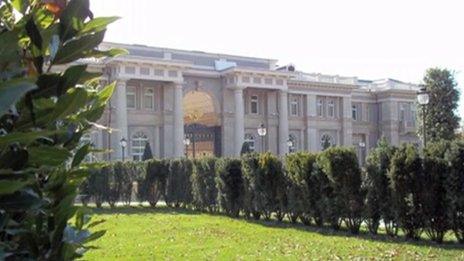Russia RBC shake-up seen as new Putin raid on media
- Published
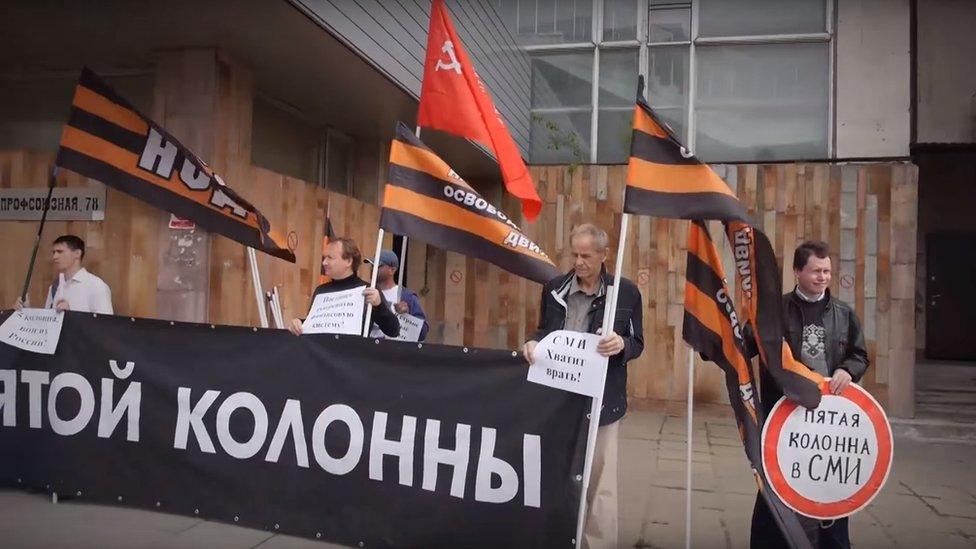
Last year Russian nationalists picketed RBC's offices, branding the broadcaster a subversive "fifth column"
The departure of three top editors from leading Russian media group RBC appears to be the latest chapter in the erosion of independent journalism under President Vladimir Putin.
Owned by a liberal-leaning tycoon, Mikhail Prokhorov, RBC was at the heart of a mini-revival of investigative reporting in Russia ever since the appointment of 39-year-old Elizaveta Osetinskaya as chief editor in January 2014.
Its journalists helped lift the veil on some touchy issues for the Kremlin:
the career of the president's younger daughter Katerina Tikhonova
the meteoric enrichment of her husband Kirill Shamalov, external
the financial affairs of the Russian Orthodox Church and political organisations linked to the Kremlin
the fate of Russian servicemen reportedly killed in the fighting in eastern Ukraine
In the context of Mr Putin's media policy, Ms Osetinskaya and her team had performed a "real miracle", said the Latvia-based independent Russian website Meduza, external.
But with the announcement on 13 May of the departure of Osetinskaya and her two senior lieutenants, Roman Badanin and Maxim Solyus, that "miracle" appears to be over.
'This is politics'
Russian government officials have denied there is anything political in the changes at RBC. Most independent journalists disagree.
"The point is that RBC had begun to have a serious influence on public opinion, and that it was one of the most quoted outlets in recent times," said Dmitry Muratov, editor of the independent newspaper Novaya Gazeta.
"When it is a matter of hundreds of thousands or millions of people, this is politics."
According to market researcher TNS, RBC's main website , externalhas a monthly audience of around 11 million from desktop traffic alone, making it one of Russia's top online news sources.
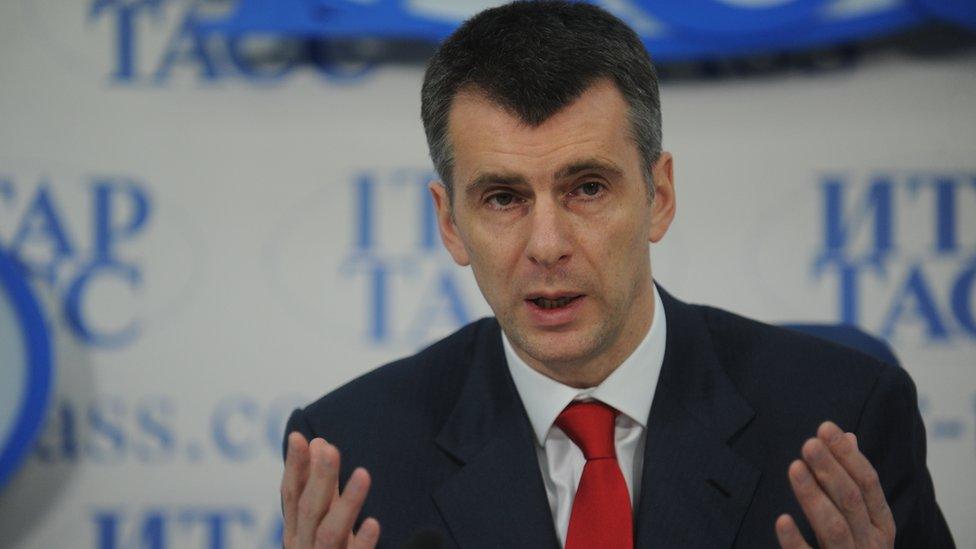
Billionaire Mikhail Prokhorov was a presidential candidate in 2012
The writing has been on the wall for RBC for some weeks.
Searches by law-enforcement officers at Mr Prokhorov's offices; an announcement that Osetinskaya was to go on a study sabbatical six months earlier than planned; rumours of a sale and a criminal investigation into the RBC management all pointed to one thing: someone very high up in the political order was very displeased.
Mr Prokhorov, a billionaire who made a fortune from precious metals, ran against Mr Putin for the presidency in 2012 but got just 8% of the vote.

The Kremlin is tight-lipped about Katerina Tikhonova - Mr Putin's younger daughter and a keen rock 'n' roll dancer
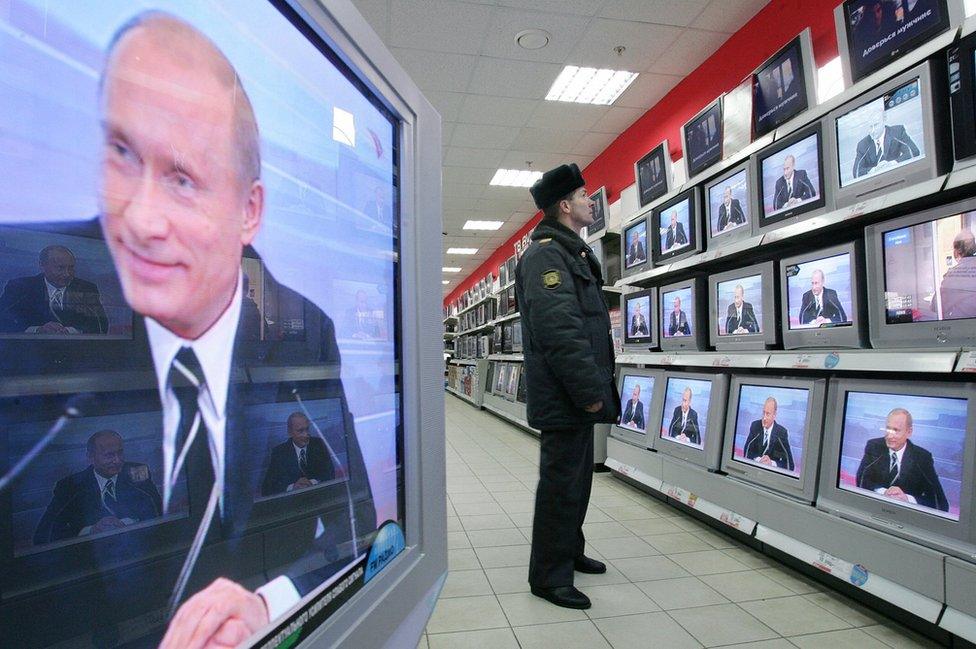
Pro-Putin managers control the main TV channels watched by most Russians
Most observers think that it is RBC's reporting on Mr Putin's family that is the root of the displeasure.
According to an RBC source quoted by Reuters, external, the final straw appears to have been an article about an oyster farm being set up near a massive luxury residence in Gelendzhik on the Black Sea, known as "Putin's palace".
The "palace" featured in a BBC Newsnight investigation in 2012.
The fate of RBC mirrors that of popular independent website Lenta.ru, whose editor Galina Timchenko was abruptly sacked in March 2014 after publishing an interview with a member of Right Sector, a prominent Ukrainian nationalist group.
Most of Timchenko's journalists followed her out of the door, thus effectively marking the end of Lenta.ru as an independent website. Many of them now work under her at the Latvia-based Meduza.
The indications are that there will be more departures from RBC.
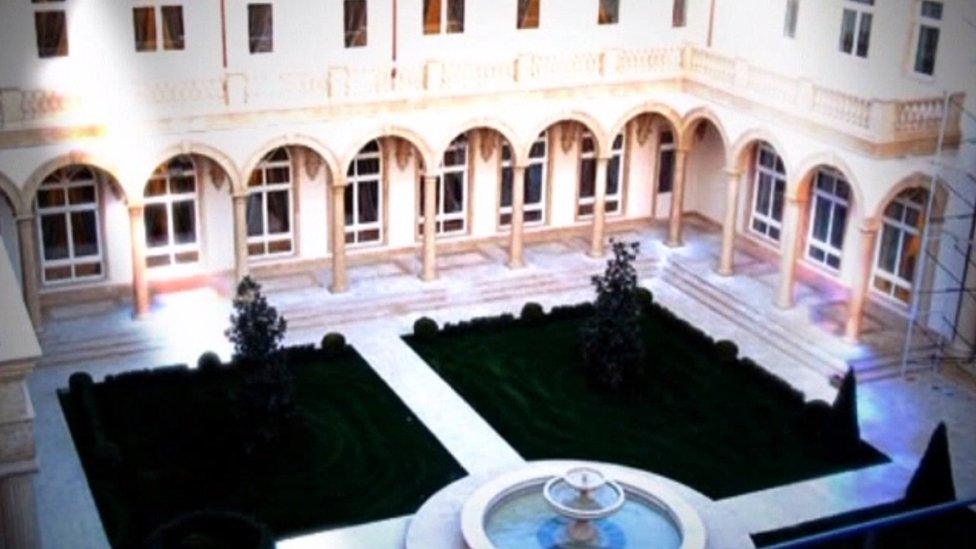
RBC investigated the lavish palace by the Black Sea believed to have been built for Mr Putin
For newspaper editor Pavel Gusev, the situation resembles the Kremlin's effective seizure of top TV channel NTV in 2001, just a year after Mr Putin came to power.
Russia still has a handful of independent media, but none have the combination of generous funding and audience reach that made RBC's reporting so influential.
They also have to contend with continual harassment and intimidation.
Speaking on independent TV channel Dozhd, journalist Oleg Kashin said that Russia had "returned to those times when foreign voices were factors in Russian public life because local voices had been shut down or stifled".
Kashin himself now publishes his articles mainly in foreign media, including German international broadcaster Deutsche Welle.
The Kremlin and its media now appear preoccupied with the idea that they are the target of an "information war" being waged against them by the West.
As the BBC's Steve Rosenberg tweeted, external, one Russian MP even used the phrase to explain her country's defeat to Ukraine in Saturday's Eurovision Song Contest.
BBC Monitoring reports and analyses news from TV, radio, web and print media around the world. You can follow BBC Monitoring on Twitter, external and Facebook, external.
- Published11 March 2016
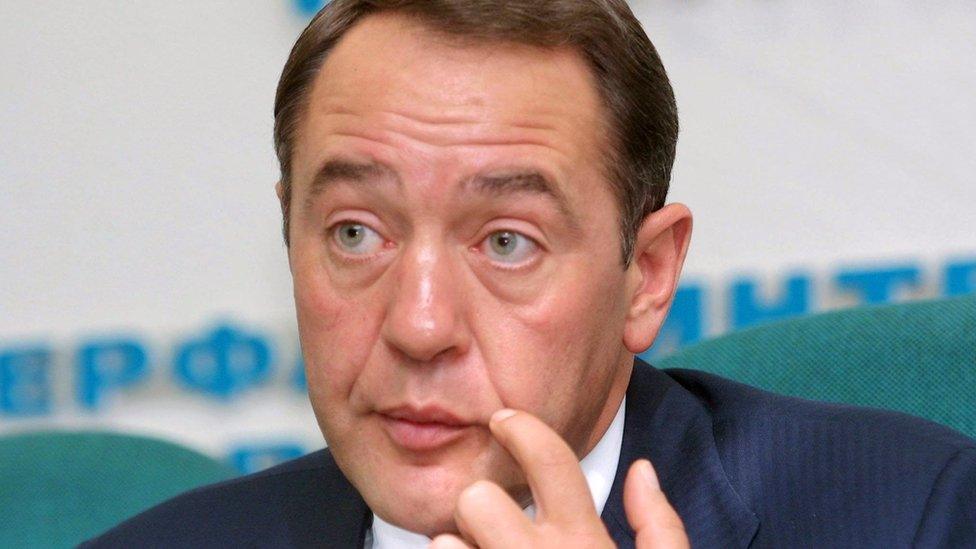
- Published6 March 2023
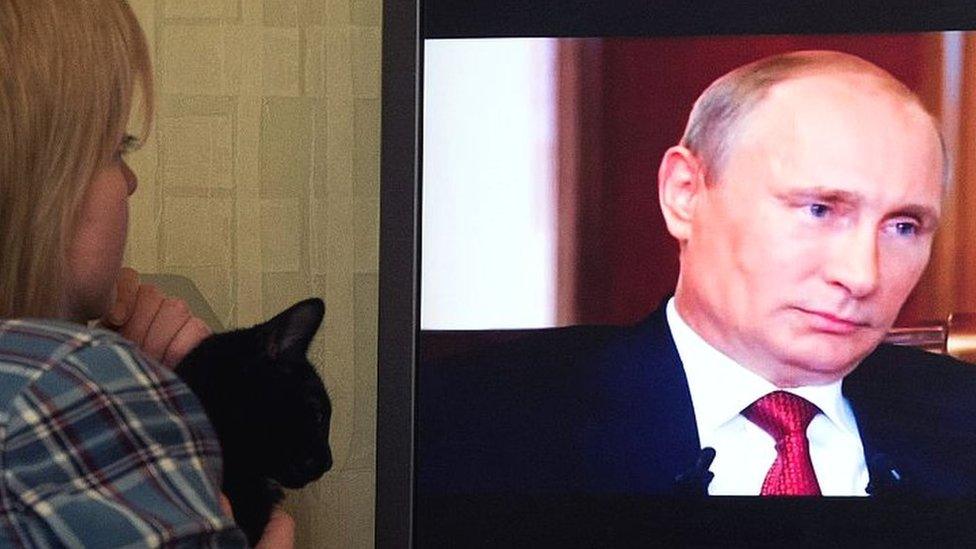
- Published17 March 2024
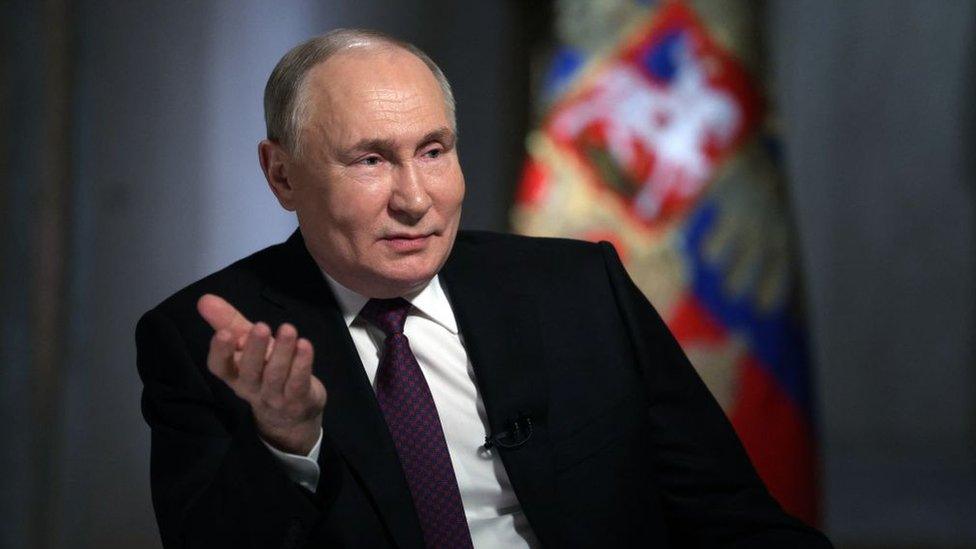
- Published4 May 2012
